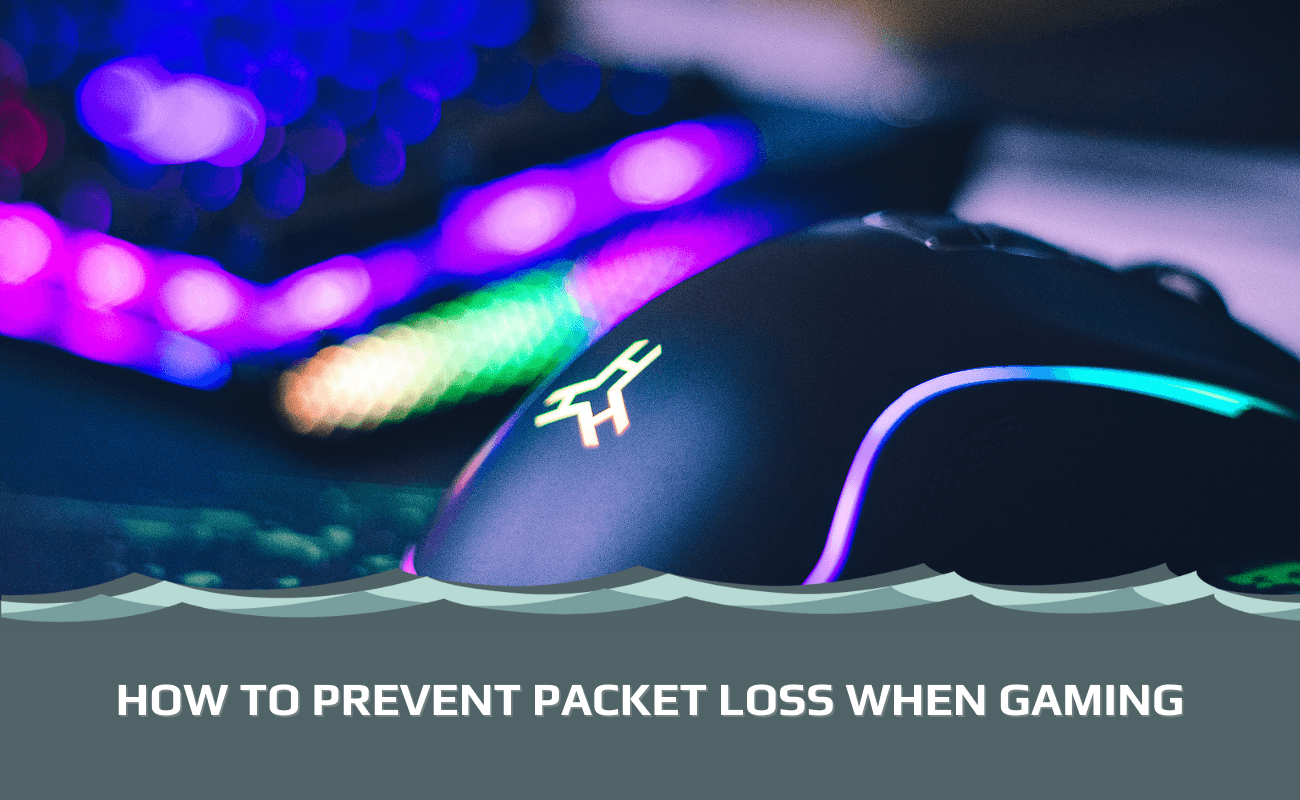
Imagine you’ve been waiting all day to sit back and relax with your favorite game for some much-needed downtime after a long workday. However, instead of a smooth and enjoyable experience, you might experience lag, freezing, or even get kicked entirely out of the game.
The above are all effects of packet loss. When gaming, packet loss is one of the greatest annoyances as it seriously disrupts gameplay and turns a usually fun experience into a frustrating and stress-inducing time.
If you’re wondering what causes packet loss and how to prevent packet loss when gaming, you’re in the right place. Here’s everything you need to know about internet packet loss and ways to fix it.
This article is a part of a series:
Chapter 1: How does a VPN affect gaming?
Chapter 2: Should I use a VPN when gaming?
Chapter 3: How to set up and use a VPN for gaming
Chapter 4: Which VPN protocol is best for gaming?
Chapter 5: What is the best free VPN to hide IP when gaming?
Chapter 6: What are the best VPN servers for gaming?
Chapter 7: How to prevent packet loss when gaming
Chapter 8: VPN for Xbox
Chapter 9: VPN for PS4
Chapter 10: VPN for PS5
Chapter 11: VPN for Overwatch
Chapter 12: VPN for Steam
Chapter 13: VPN for Black Desert Online
What is Packet Loss?
If you’ve never heard of packet loss, you’re not alone. Packet loss is a relatively new term used to describe data packets that get lost while in transit. When you do anything online, your action is split into tiny data packets that are individually sent to the target destination before coming together with the other units of data.
So, when you game, every small action you take is split into smaller data packets and then sent to the gaming server. However, if some of these data units are lost in transit or take long routes via multiple servers to reach their destination, it is known as packet loss; this is what can cause glitches while playing online games.
Packet loss doesn’t just affect gaming performance. There are many other ways that packet loss presents itself, such as interruptions during video conferencing and voice calls on VoIP services.
What Cause Packet Loss in Games?
There’s no denying that the effects of packet loss during gaming are highly annoying, and the best way to fix packet loss is by first finding out the root cause. Here are the main reasons for packet loss:
- A lot of network traffic is usually a primary reason for packet loss. Network congestion is when there is too much traffic and, therefore, more data is being transmitted than the network infrastructure can handle. If your internet provider has bandwidth limits or space limitations, transfer speed can be severely slowed down. This means network packet loss can be common during peak times, especially when gaming.
- Another reason for packet loss when gaming is overloaded devices. For example, suppose you’re gaming on your phone or computer but have apps running in the background, with updates and notifications arriving on your device. In that case, the network is working harder to ensure that all data arrives at network devices. This can result in discarded packets.
- Faulty hardware is a significant cause of packet loss. One example is if you have an old router or modem, which can cause packet loss since the hardware is not up-to-date and cannot handle all the data requests, resulting in network issues.
- The software you employ also plays a role in network conditions which can result in packet loss. Software bugs or outdated software that requires updating can affect network packet loss.
- Wireless networks are more popular than a hardwired Ethernet connection; however, if you’re gaming on wireless devices, you might find that the network will drop packets more often due to distance and instability.
- Security threats such as a Distributed Denial of Service attack or DDoS attack can also cause packet loss. This is when hackers overload gaming servers to interrupt your gameplay and get you booted out of games.
Is Packet Loss Bad in Gaming?
Packet loss is extremely bad in gaming. If the network packets of data carried are lost or take too long to arrive at their destination, this causes many issues, from glitches to lag or even being wrongly kicked out of the game.
It isn’t just gaming that suffers from packet loss; it can cause longer download times on torrent platforms, longer load speeds on remote sites over long-distance internet connections, and interruptions on VoIP calls.
So, for an overall good internet experience, especially when gaming, it is vital to constantly monitor packet loss so that you can fix network packet loss if and when it occurs.
How to Check for Packet Loss?
Monitoring packet loss is essential if your goal is eliminating packet loss on your network. There are a few ways to check packet loss statistics on your network:
- There may be some obvious signs that you are experiencing packet loss; for example, video calls that buffer or drop or games with lag and constant interruptions are pretty apparent indications that you are experiencing packet loss.
- Another way to diagnose packet loss is through network monitoring. Your home network performance may be affected by many connected devices. This is because many network device connections at once can cause network overloads creating an unstable or slow internet connection.
- A simple way to check packet loss across your entire network is to use a packet loss checking website. By visiting a specialized test website, you can view network performance metrics and know what is causing any interference with your gaming.
How Do I Fix Packet Loss in Games?
Now that you know the causes, you can fix packet loss when gaming. Here are our top tips for fixing packet loss.
- The best way to stop packet loss during gaming is to use wired networks. A wired connection ensures a stronger connection, removing packet drops that occur between your router and the game server. If you’re not already gaming via a cable connection, you should.
- Switching off wireless systems is another great way to prevent network overloads. You can switch off wireless devices such as wireless speakers and make sure all devices connected to the network aren’t being used for high-bandwidth consuming activities.
- Check your hardware and software. Ensure that software is up-to-date, and make sure that your router and any cable connections are in good condition.
- Another foolproof way to fix packet loss during gaming is to use a Virtual Private Network (VPN). A VPN for gaming will redirect traffic so that they don’t go through your regular internet network. This means all of your data will be routed via a separate route to the VPN server, resulting in a smoother connection and zero packet loss. Moreover, you can change your VPN protocol to suit the activity you’re doing and the app you’re using. For example, some protocols are better for VoIP traffic while others are better for gaming, such as IKEv2.
Is 100% Packet Loss Bad?
Although it sounds unlikely, 100% packet loss can occur and is a bad situation to be in. With 100% packet loss, you’ll be unable to use the internet since communication between your device and the other devices is essentially not working.
Fortunately, by following the tips above, you can overcome packet loss and enjoy a smoother gaming experience.

I’m Madeleine, and I'm a writer that specializes in cybersecurity, tech products, and all things related to the internet.
I have a keen interest in VPNs and believe that everyone deserves internet freedom and security. I wr...
Read more about the author

